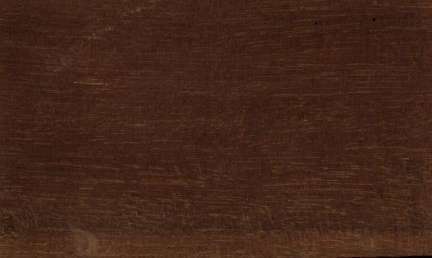
Upun batu (Upuna borneensis)
Family: Dipterocarpaceae
Common names: Balau, Balau penyau, Cangal, Cangal gading, Cangal tanduk, Dusun, Kenyahuk bantuk, Pan yua tanduk, Panyau, Panyau tulang, Penyau, Resak, Tekam, Tekem, Upun, Upun batu
Distributed in: Brunei, Indonesia, Malaysia (Oceania and S.E. Asia)
Distribution overview: Described as a lowland forest tree, and is found in Borneo, as well as Sabah, Sarawak, and Brunei.
Common uses: Boat building (general), Bridge construction, Building construction, Building materials, Cabin construction, Construction, Factory construction, Heavy construction, Mine timbers, Wharf construction
Environment profile: Secure in many areas of its range
Tree size: Tree height is 20-30 m
Colors: the heart isDarkens significantly upon exposure, Redand the sapwoodWell defined, White to yellow.The grain isStraight, the textureMediumand the lusterSlightly lustrous
Natural durability: Moderately durable, Very durable
Odor: No specific smell or taste
Kiln Schedules: Drying (speed) is fast
Drying Defects: Slight end splitting, Slight surface checking
Ease of Drying:
Radial: 1.0 to 1.5%
Shrinkage from Green to 15% MC
Tangential: 1.5 to 2.0%
The material dries fairly rapidly, with very little degrade.
Tree Identification: Bole/stem form is straight
Comments: Twice as hard as Teak, and 50% stonger in other properties except in shock and resistance
Blunting Effect: Medium effect
Boring: Moderately easy
Cutting Resistance: Cutting Resistance with green wood is moderate
Planing: Planes to a smooth surface
Resistance to Impregnation: Sapwood is extremely resistant
Response to hand tools: Moderate working qualities
Turning: High density adversely effects turning
Presence of gum in the timber are reported to adversely affect most of its machining properties
- Numerical data Metric
- Numerical data English
- Strength properties
- References
 |
 |
 |
 |
| Item |
Green |
Dry |
Metric |
| Specific Gravity |
0,8 |
|
|
| Density |
|
961 |
kg/m3 |
| Bending Strength |
|
|
kg/cm2 |
| Crushing Strength |
|
|
kg/cm2 |
| Hardness |
|
|
kg |
| Impact Strength |
|
|
cm |
| Shearing Strength |
|
|
kg/cm2 |
| Stiffness |
|
|
1000 kg/cm2 |
| Tangential Shrinkage |
|
|
% |
| Radial Shrinkage |
2 |
|
% |
| Weight |
897 |
785 |
kg/m3 |
| Maximum Load |
|
|
cm-kg/cm3 |
| Toughness |
|
|
cm-kg |
| Static Bending |
|
|
kg/cm2 |
|
 |  |  |  | | Item | Green | Dry | English | | Density | | 60 | lbs/ft3 | | Specific Gravity | 0.8 | | | | Weight | 56 | 49 | lbs/ft3 | | Radial Shrinkage | 2 | | % | | Tangential Shrinkage | 4 | | % | |
Density (dry weight) = 61-67 lbs/cu.ft
Shrinkage, Tangential = very small
Shrinkage, Radial = very small
Density (dry weight) = 67-75 lbs/cu. ft
Density (dry weight) = 53-60 lbs/cu. ft
Very high density
Andy Poynter. 1993. Personal CommunicationAshton, P.S.,1964,A manual of the Dipterocarp trees of Brunei State,O.U.P. LondonChudnoff, M.,1984,Tropical Timbers of the World,U.S.A. Department of Agriculture, Forest Service, Forest Products,Laboratory, Madison.Fundter, J.M.,1982,Names for Dipterocarp timbers and trees from Asia,Pudoc, Wageningen, NetherlandsMeijer, W., Wood, G.H.S.,1964,Dipterocarps of Sabah (North Borneo,Sabah Forest Department, Forest Record No.5Moore, K.M.,1972,Observations on some Australian forest insects: 26 Some insects attacking,three important tree species (Eucalyptus grandis, Eucalyptus pilularis and,Eucalyptus saligna,Australian Zoologist 17(1) pp30-9Sarawak Forestry Department,1953,Trees and Timbers of Sarawak and Brunei - Leaflet No. 9 Family,Dipterocarpaceae,Forest Department of SarawakThomas, A.V.,1953,The timber of Upun Batu (Upuna borneensis,Malaysian Forester 16(3, 163-5WCMC. 1992. Conservation Status Listing - Trees and Timbers of the World. World Conservation Monitoring Center-Plants Programme, Cambridge, CB3 ODL, United Kingdom.
|








